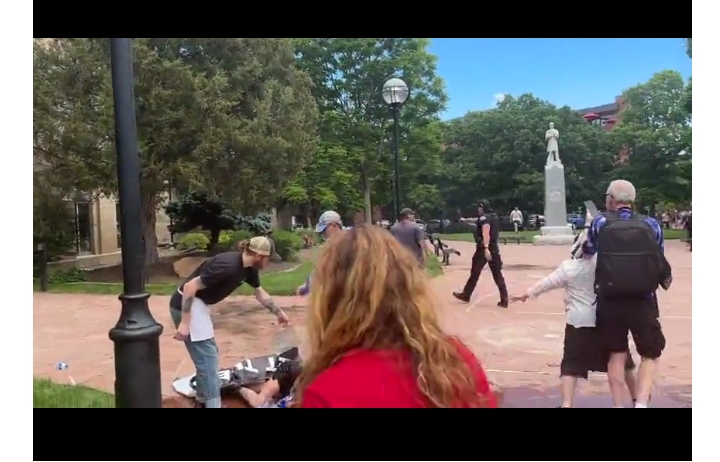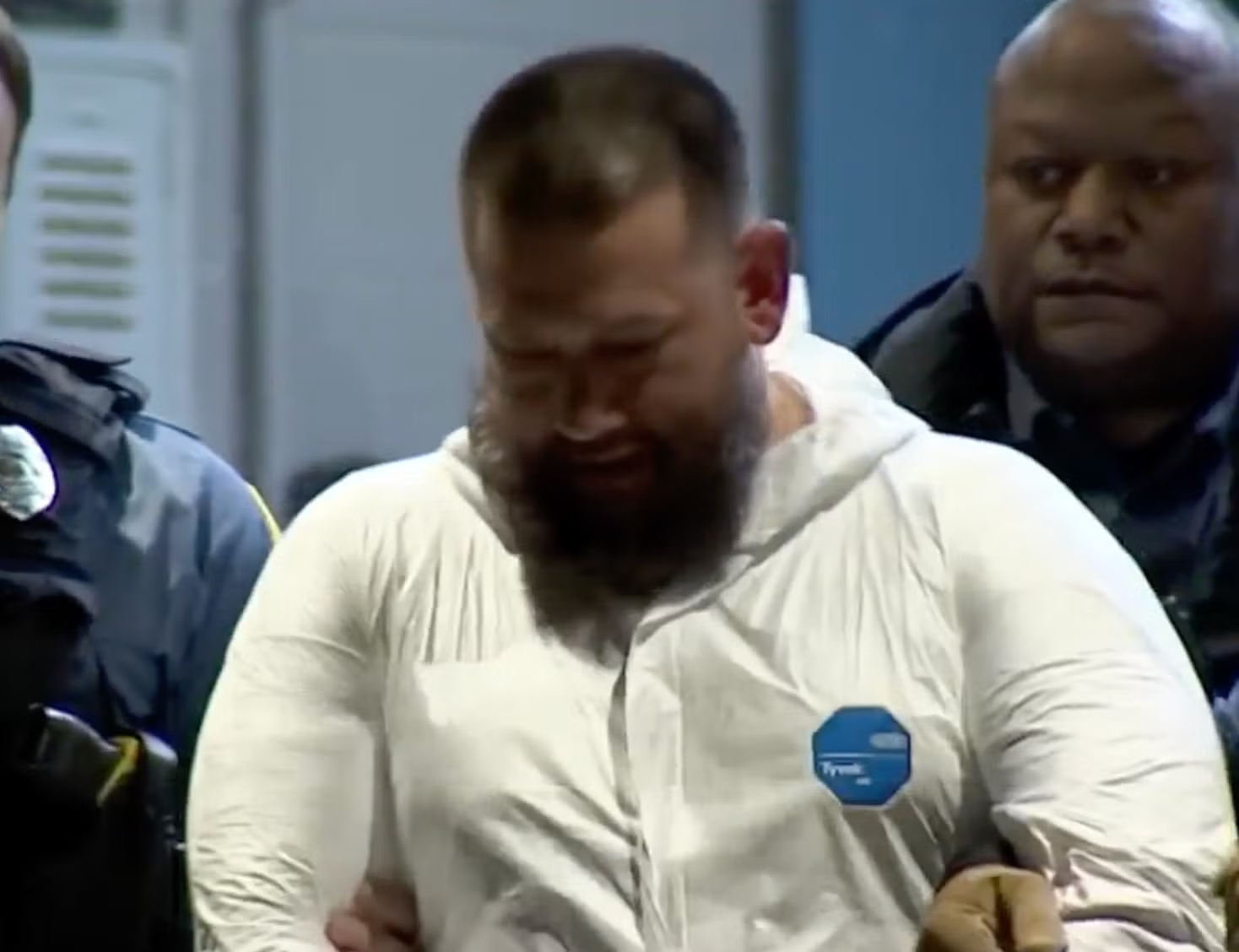Wife and Children of Boulder Terror Suspect Mohamed Sabry Soliman—Including Detained Minors—Now in Federal Custody Following DHS, ICE, and HSI Terrorism Response Operation
In a dramatic escalation of federal counterterrorism and immigration enforcement efforts, the wife and five children of Mohamed Sabry Soliman, the Egyptian national charged in connection with a violent terrorist attack in Boulder, Colorado, have been detained and placed into federal custody. The arrests were carried out by agents with U.S. Immigration and Customs Enforcement (ICE) and Homeland Security Investigations (HSI), and the family is currently undergoing processing for expedited removal proceedings under existing immigration statutes.
Federal Action Targets Entire Family of Accused Boulder Attacker
According to senior officials at the Department of Homeland Security (DHS), the detention occurred early Monday morning at the family’s Colorado Springs residence. DHS confirmed that the operation was coordinated in conjunction with ongoing federal investigations into the Boulder attack and any possible support network that may have enabled or concealed Soliman’s alleged activities. The family was taken into custody without incident and is being held in a secure federal immigration detention facility pending deportation proceedings.
Authorities have not publicly disclosed the names or ages of Soliman’s five children, citing their status as minors. However, they confirmed that all of them were born outside the United States and were residing in the country unlawfully or under expired visa conditions. Soliman’s wife, whose name has not been released, is also facing removal for violations of immigration law. Federal sources suggest that the decision to detain the family reflects both national security considerations and potential concerns about material support or awareness of Soliman’s activities.
Background of the Terror Suspect and His Path to the U.S.
Mohamed Sabry Soliman, the prime suspect in the attack, entered the United States on a B1/B2 tourist visa in 2022. Although he was granted temporary work authorization later that year, his status lapsed when his work permit expired in March 2025. By the time of the attack in June, Soliman was residing in the country unlawfully.
Court documents reveal that Soliman had been living in Colorado Springs and had no legal means of employment at the time of the incident. According to federal prosecutors, he had been actively planning the attack for over a year. Investigators believe he chose to delay the operation until after his eldest daughter’s high school graduation—a calculated move that raises troubling questions about his long-term intent and capacity for violence.
Details of the Boulder Attack: A Calculated Act of Terror
On Sunday afternoon, June 1, 2025, Soliman allegedly disguised himself as a landscaper and approached a peaceful pro-Israel demonstration taking place outside the Boulder County Courthouse. The demonstration, hosted by the nonprofit organization Run for Their Lives, was part of a recurring awareness campaign advocating for the return of Israeli hostages believed to be held by Hamas following the October 7, 2023, attacks in Israel.
Soliman is accused of hurling several Molotov cocktails into the gathered crowd, igniting a chaotic and violent scene that left twelve people injured. Eyewitnesses reported seeing flames erupt across multiple sections of the crowd, followed by screams and a rush to extinguish fires. Emergency medical teams responded within minutes, and multiple individuals were hospitalized with varying degrees of burns and smoke inhalation. As of June 3, two victims remain in critical condition, with one undergoing skin graft procedures.
Witness statements and video evidence have played a crucial role in the rapid progression of the case. According to federal investigators, Soliman admitted during initial interrogations that he had intended to kill “Zionist people” and expressed no remorse for his actions. He even stated that he would repeat the act if given another opportunity.
“This was not a spontaneous outburst or isolated act,” a senior federal law enforcement source stated. “It was a deliberate, premeditated, and ideologically driven attack intended to harm civilians exercising their First Amendment rights.”
The Impact on the Jewish and Pro-Israel Community in Boulder
The Boulder community—particularly participants and organizers of Run for Their Lives—has been shaken by the attack. Omer Shachar, a local Jewish community leader and key figure in the weekly demonstrations, described the moments of terror and confusion as flames swept through the peaceful crowd.
“This was a space for unity, remembrance, and advocacy,” said Shachar. “To be met with violence in such a targeted and brutal way is deeply traumatizing. We have paused our weekly walks for now to reassess safety, but we will not be deterred. Our mission continues.”
Run for Their Lives is known for attracting participants from a diverse range of backgrounds, including Jewish and non-Jewish Americans, religious and secular attendees, as well as individuals from across the political spectrum. The organization has called for greater protection of free speech and assembly rights in the wake of the attack.
A Political and Legal Firestorm: Federal Charges and National Security Implications
Mohamed Sabry Soliman now faces an array of serious federal and state charges, including but not limited to:
- Multiple counts of attempted murder
- Use of incendiary devices in a public space
- Committing an act of terrorism
- Possession of unlawful weapons
- Assault with intent to cause grievous bodily harm
Prosecutors have indicated that they are reviewing additional digital evidence—including Soliman’s communications, financial activity, and travel history—to determine if others were involved in the planning or support of the attack. Federal agents are also exploring Soliman’s online affiliations and whether he was influenced or guided by extremist groups.
In a statement issued Monday, Secretary of State Marco Rubio underscored the administration’s hardline stance:
“In light of yesterday’s horrific attack, all terrorists, their family members, and terrorist sympathizers here on a visa should know that under the Trump Administration we will find you, revoke your visa, and deport you.”
Rubio’s statement reflects a broader shift in national security policy aimed at preemptively identifying and removing individuals with suspected ties to extremist ideologies or violent intentions.
Legal Proceedings and Community Fallout
Soliman made his initial court appearance via video link from a federal detention center in Denver. His defense attorney has requested a psychiatric evaluation, although no formal plea has been entered. Federal prosecutors are pushing for pretrial detention, arguing that Soliman represents an ongoing threat to public safety and national security.
The arrest of his wife and children has sparked debate over the scope and ethics of family detention in cases involving terrorism. Immigration advocates have called for due process protections, especially for minors. However, DHS has defended its actions, citing the urgency of national security and immigration violations.
Local interfaith groups in Boulder have scheduled a vigil for the victims of the attack, set to take place at Central Park on Wednesday evening. Organizers are encouraging community members to show solidarity and resilience in the face of violence.
The Bigger Picture: Immigration Enforcement and Domestic Security
The Soliman case has become a flashpoint in a broader national debate about immigration enforcement, visa overstays, and domestic extremism. Critics argue that more stringent background checks and visa monitoring could have prevented Soliman from remaining in the country unlawfully. Supporters of the current enforcement action praise ICE and HSI for acting decisively and preventing further potential harm.
Meanwhile, congressional hearings on immigration-related national security threats are expected to convene later this month. Soliman’s case will likely serve as a focal point in discussions about reforming visa issuance, monitoring foreign nationals with expired documentation, and enhancing coordination between local law enforcement and federal agencies.
Looking Ahead
As the investigation unfolds, Boulder residents, national security officials, and human rights organizations alike are grappling with the implications of this violent episode. Soliman’s case, while deeply tragic, has catalyzed renewed urgency around national security readiness, immigration oversight, and community safety.
For the victims—whose names are currently being withheld pending family notification—and for the broader community that witnessed the violent disruption of peaceful assembly, the road to recovery may be long. But as organizers like Omer Shachar have stated, resilience, not fear, will define their response.
“We won’t let hatred win,” Shachar said. “We will march again.”




